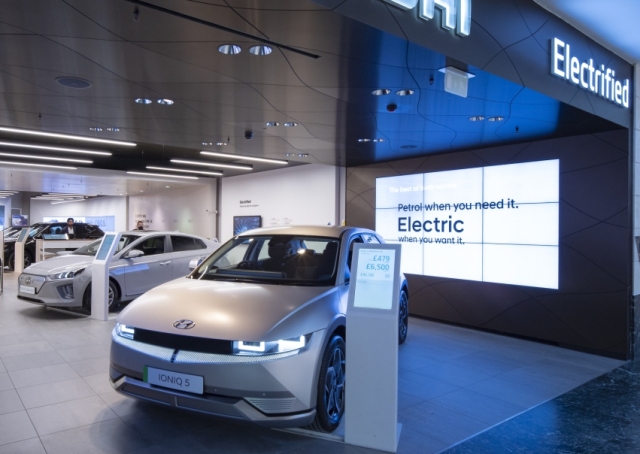Hyundai Motor has set its target of selling 5.55 million vehicles by 2030, aiming to register 30 percent growth from 2023 levels, as the company plans to double its hybrid lineup in response to a deceleration in global electric vehicle (EV) demand.
Hyundai, the South Korean automaker, has reaffirmed its EV sales target of 2 million units by 2030. The company has increased its hybrid sales goal by 40 percent, aiming for 1.33 million units by 2028. Hyundai is the world’s third-largest automaker by sales. Hyundai’s targets include affiliate Kia.
Hyundai Motor President and CEO Jaehoon Chang, during an investor day presentation, has emphasized that the shift towards hybrids reflects a growing demand for these vehicles as they become a standard option rather than just an alternative to traditional internal combustion engines.
Hyundai plans to double its hybrid offerings to 14 models, with a focus on the North American market. Hyundai Global Chief Operating Officer Jose Munoz mentioned that Hyundai might begin hybrid production at its new Georgia plant by the first quarter of 2026, with hybrids potentially accounting for one-third of the factory’s capacity, Reuters news report said.

Hyundai’s strategic pivot towards hybrids aligns with similar moves by industry competitors like Toyota and Ford. However, Hyundai is differentiating itself by expanding into the extended-range electric vehicle (EREV) segment.
Popular in China but still gaining traction globally, EREVs use a larger battery pack than typical plug-in hybrids and operate solely on electricity, with a gasoline engine serving as a power source to recharge the batteries. Hyundai plans to start mass production of EREV models in North America and China by the end of 2026, offering a competitive alternative to EVs with a driving range of over 900 km (559 miles).
In China, Hyundai aims to sell 30,000 EREV units by focusing on compact models, while in the U.S., it targets 80,000 EREV sales with an initial focus on large SUVs and the Genesis luxury brand.
Hyundai announced plans to offer its autonomous driving vehicle platforms and technology to other manufacturers. The company, which recently posted record quarterly profits, aims to fund its improved shareholder return policy through its operations, targeting an operating margin of 9-10 percent by 2027 and over 10 percent by 2030.
CFO Seung Jo Lee noted that Hyundai’s strategy of launching hybrids, EVs, and EREVs will help improve profitability and operating margins across its powertrains, reinforcing the company’s commitment to a profit-oriented approach. Hyundai also plans to update the market on the use of proceeds from the upcoming initial public offering (IPO) of its India operations, which is expected to raise between $2.5 and $3 billion.

